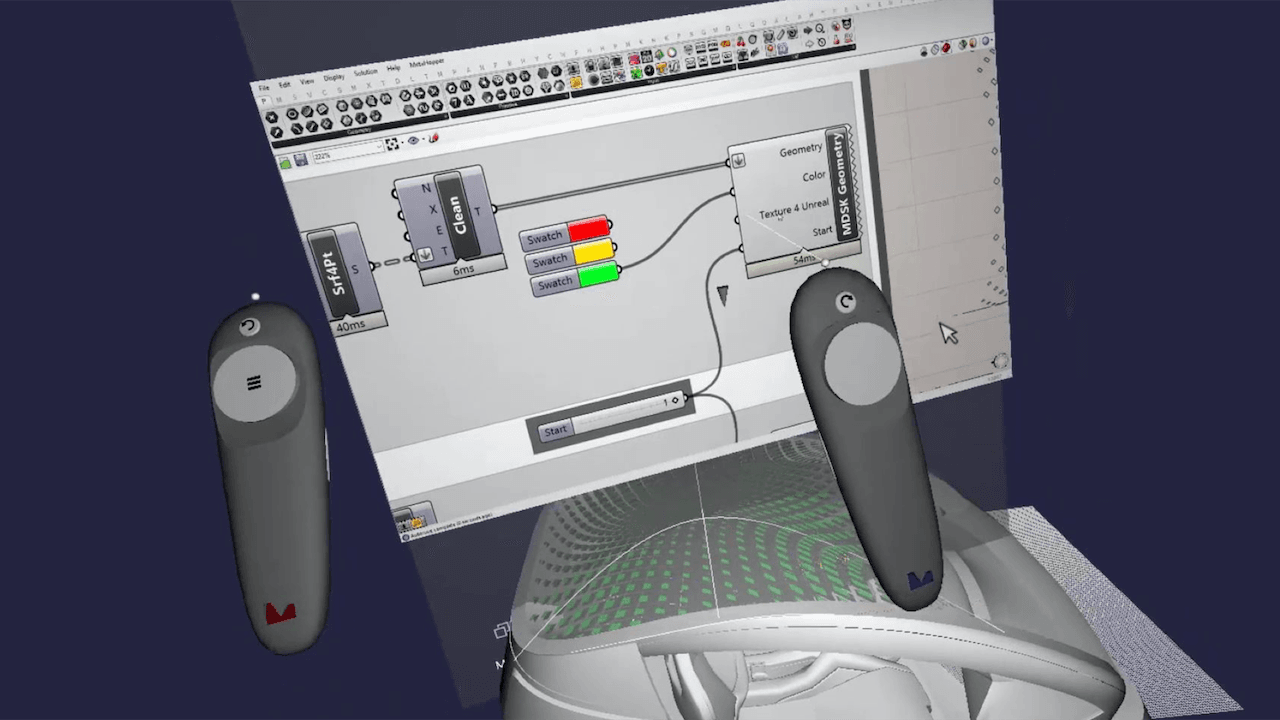Virtual Reality design review and real-time rendering in the Unreal Engine, for CAD and BIM.
Mindesk is a powerful solution to support design review and real-time rendering workflows for Rhino3D, Grasshopper, Solidworks, and Autodesk Revit professionals.
Get StartedCAD and BIM live-link delivers exponential benefits.
Mindesk connects directly with your Rhino3D, Grasshopper, Solidworks, or Autodesk Revit projects, delivering unprecedented workflows.
Faster Rendering
With Mindesk’s live link, you can visualize your CAD and BIM projects in the Unreal Engine while you are designing. No export and import required thanks to real-time Unreal Engine renderings.
Faster Decisions
With CAD VR and BIM VR, you can experience projects at scale resulting in faster and more effective decision making processes.
Less Costs
Bring stakeholders together inside of your Rhino3D, Grasshopper, Solidworks, or Autodesk Revit projects in virtual reality from anywhere in the world. Design review at scale with no travel required.
Less Mistakes
Mindesk delivers true scale design review to catch expensive mistakes with great clarity. The live-link with your CAD and BIM projects, enables on-the-go iterations and reviews.
Increased Collaboration
Collaborate in CAD VR and BIM VR from anywhere in the world. On-the-go design iterations thanks to the live-link in Rhino3D, Grasshopper, Solidworks, or Autodesk Revit .
Win Projects
Communicate designs with greater clarity in virtual reality, directly from your CAD and BIM designs. Gain the trust of clients with unprecedented experiences.
Expand your CAD and BIM experience with Mindesk.
Mindesk’s live-link enables uninterrupted workflows from Rhino3D, Grasshopper, Solidworks, or Autodesk Revit to virtual reality (VR) and the Unreal Engine. No export-import required.
Real-time Rendering
Mindesk connects in real-time your CAD and BIM projects directly in the Unreal Engine. It allows you to render your design-changes on-the-go, without interrupting your workflows.
Bi-Directional Live Link
Mindesk enables one-click bi-directional live link with Rhino3D, Grasshopper, Solidworks, or Autodesk Revit to virtual reality and the Unreal Engine. No 3D model conversion and export required.
Immersive 3D CAD Modeling
Create your 3D models directly in virtual reality to accelerate prototyping workflows. Mindesk enables the manipulation of complex and organic designs, NURBS and 3D Bézier.
Remote VR Collaboration
Collaborate in virtual reality on the same CAD and BIM project. Real-time 3D model manipulation from virtual reality with colleagues and stakeholders for accelerated decision making.













